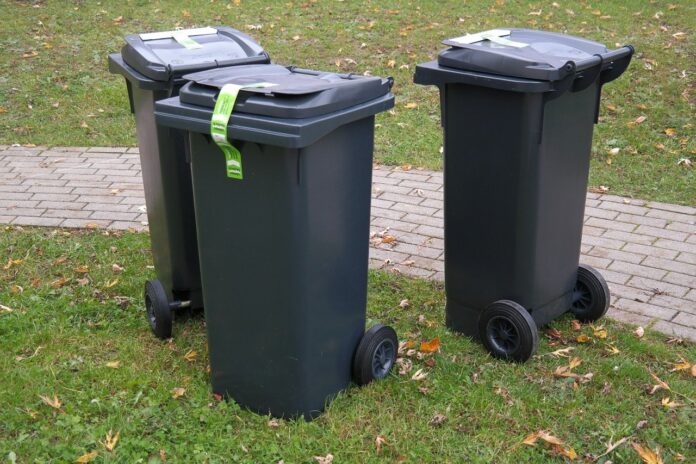The past few months have been extremely challenging for the public healthcare system, the economy, and now, the environment. In the first months of the pandemic, we would have been tempted to think otherwise because there were fewer cars on the streets, and factories had temporarily halted their activity. In the long run, however, things may not be so bright.
According to the Greater Manchester Combined Authority (GMCA), the recycling rate has dropped by 5.1% between April and June 2020 compared to the same time last year, from 52.9% to 47.8%. However, the report also outlined a positive change: overall diversification from landfill is on the rise, now reaching 97.7%.
The setback, officials explain, is mostly due to the pandemic. The disruption in bin collection schedules and the sudden switch to work from home have changed recycling habits that took years to instil and if Manchester is to continue its sustainability journey, we need more awareness of the importance of recycling.
As it usually happens in times of crisis, urgent matters take centre stage. Facing the full-blown impact of the pandemic, many people have left sustainability behind, but handling the healthcare crisis doesn’t have to come at an environmental cost.
Plastic-based medical waste and contamination
Personal protective equipment is vital to reduce the risk of infection with the novel Coronavirus, but it also affects the environment and can become an alarming source of waste. Items such as single-use gloves, face masks, and face shields should ideally be incinerated. This is the most practical way to get rid of viruses and prevent them from going to the landfill. However, only a small percentage of used PPE is disposed of this way. The vast majority of the population throws away masks and disposable gloves at the bin, along with the rest of the waste, and that has the potential of an environmental disaster.
According to a recent estimate, 20,000 tonnes of single-use face masks will end up in landfill by March 2021. That’s over 53 million masks thrown away every day. The use of face masks is, of course, an inevitable compromise. Masks are made from plastics that cannot be recycled, and they’re contaminated, so when you throw away a mask, assume it will go to the landfill. One mask can also contaminate recyclable waste. According to GMCA, contamination levels have increased by 2% in the first trimester of 2020, and rejection of kerbside recycling collections has also gone up. However, masks ending up in landfill aren’t the worst-case scenario. Dropping your masks on the ground or losing them is even more dangerous because they can reach rivers and eventually the ocean, where they can endanger marine wildlife and raise pollution levels.
Running out of rubbish bins and changes in household recycling habits.
Spending more time at home has also led to changes in recycling habits. In the past few months, people have been ordering more takeout, which comes with single-use plastic cutlery and disposable containers. As a result, the amount of household waste has increased. According to data from the Local Government Association, eight out of ten English councils have seen a rise in the amount of paper, plastic, cardboard, and glass collected. Some councils have even reported that the amount of recycled waste has doubled – something that usually only happens during the holidays.
On the one hand, the fact that individuals are sending the waste to recycling bins is encouraging. In the current context, however, it has become problematic. To maintain services at the current level, LGA needs to cover a £5billion shortage. More waste means higher costs to councils, cleaning services for vehicles, extra recycling bins, and extra staff – requirements that are hard to fill because of the pandemic.
Because they’re producing more waste, homeowners are running out of rubbish means and are starting to sort waste incorrectly. Even before the pandemic, 30% of recycling was done incorrectly, and this can cause heavy financial losses. For example, a plastic bag that finds its way into the blue bin can clog recycling machines can damage parts that cost thousands to repair. A dirty glass jar thrown away in the plastic bin can also render the entire lot unusable. So, even if people have good intentions, it’s more important than ever to educate them on how to recycle correctly and supplement the number of bins per household in the areas where more waste is produced. Businesses shouldn’t be excluded either. After switching to remote work for a few months, production is now in full swing, so it’s important for businesses around the UK to have sustainable waste-management solutions such as balers and compactors, which also save money on landfill taxes.
China closing its market
Not all waste management challenges were caused by the pandemic. According to David Robinson, head of Service-Operations at Salford City Council, China’s import ban remains a sensitive issue. Enacted in 2018, China’s policy has proven problematic for the UK, which must now rely on its internal markets, which have stricter quality standards and don’t allow the slightest contamination. He also added that local authorities are discussing options with waste collectors, so that recycling rates increase in Greater Manchester.
Conclusion
The pandemic has tested the limits of the national recycling system to the limit, but, at the same time, it offers growth opportunities. As people continue to recycle, Manchester can come closer to its sustainability targets if local authorities continue to raise awareness and develop a smart infrastructure, fit for the future. Ultimately, even if these are complicated times, we should remember the consequences of our actions. Neglecting recycling may seem understandable now, but when the pandemic is over the consequences will be there, and we won’t be able to run from them.







